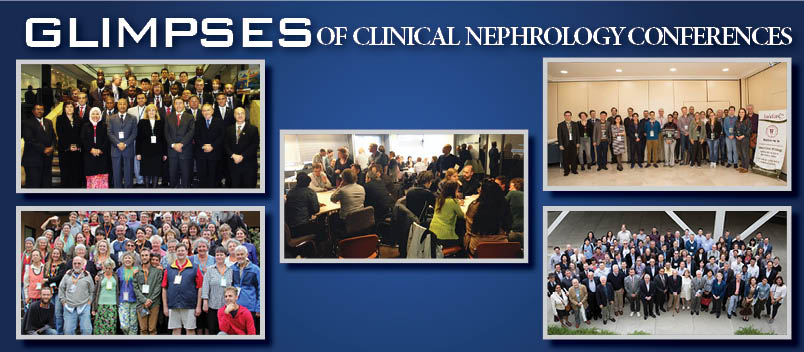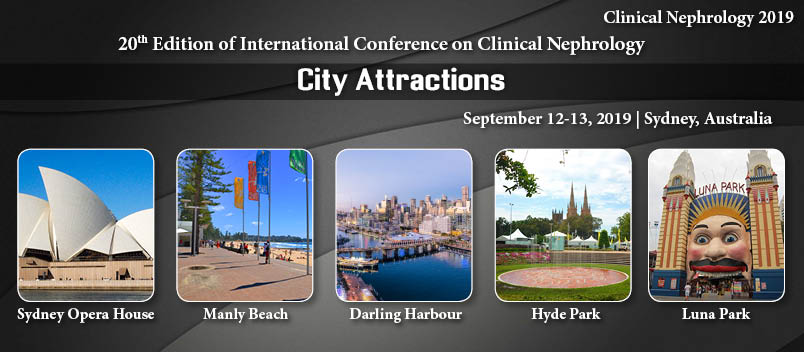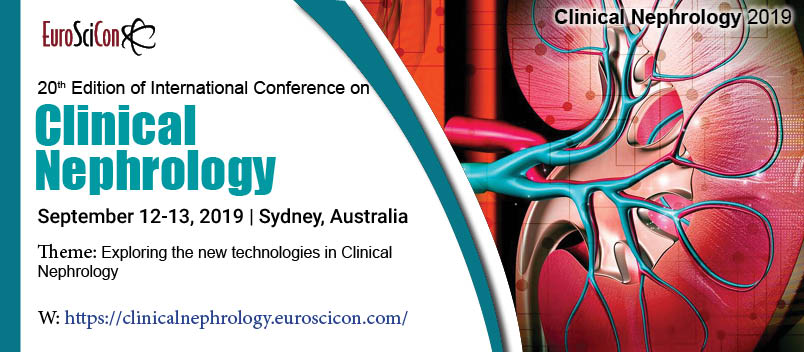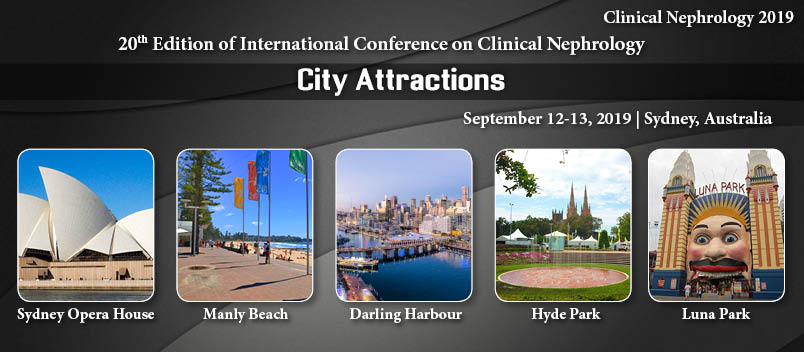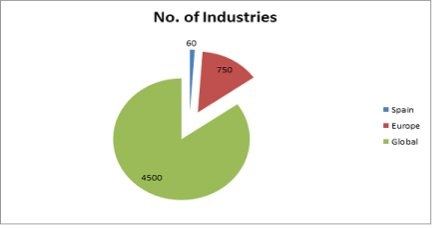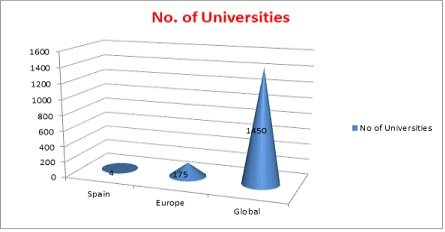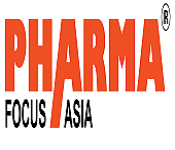Clinical Nephrology 2019
About Conference
EUROSCICON is heartily offers you to the "20th Edition of International Conference on Clinical Nephrology" in Sydney, Australia from September 12-13, 2019.
We pleasantly welcome all the detectable scientists, understudies and agents to take an interest in our Clinical Nephrology 2019 conference to share and feature the distinctive research works and add to the immense creating field of Nephrology.
Clinical Nephrology 2019 Conference centers around the unfamiliar periods of Nephrology investigate which gives a consummate chance to analysts wherever all through the world to take a premium, share and recognize new contemplations and besides investigation work. Our subject "Investigating the new advancements in Clinical Nephrology" focuses on understanding the dark substances of the Nephrology and its examination. The multi day meeting secures the workshops and keynote talks from some prominent specialists who outperform in the field of core interest. This gathering contains the issues of Nephrology, for example, Clinical Nephrology, Kidney Transplantation, Dialysis, Glomerular Disease, ESRD and some more. Our overall assembling furthermore excites the commitment of understudies, approaching scientists as we are compering Young research Forum and best publication grant at our meeting.
ABOUT US:
EUROSCICON is the longest running free life science occasions organization with a transcendently scholarly customer base. Our multi-proficient and multispecialty approach makes a one of a kind or deal that can't be found with an expert society or financially.
WHY CLINICAL NEPHROLOGY 2019?
This is one of the best chances to draw in with the famous researchers from the zone of Nephrology. With your insight displayed here to help the world you can motivate more individuals to improve their exploration. Most conspicuous speakers, cutting edge innovations and revelations in the field of Nephrology are the features of this multi day meeting.
MARKED SPECTATORS:
1. Nephrologists
2. Nephrology faculty
3. Nephrology researchers
4. Nurse Practitioners
5. Physician Assistants
6. Young researchers
7. Aspiring students
8. Pharmaceutical Companies
9. Medical Device Companies
10. Residents
THE ONE READING THIS!!
Session/Tracks
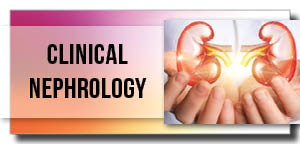
Clinical Nephrology includes therapeutic treatment of kidney disease and conditions. This may involve working with different areas of the body that likewise are impacted by the kidneys. Kidneys play an imperative character for life with their composite system of blood vessels and complicated network of tubes and tubules that filter blood of its waste products and excess water. Kidneys retain liquids, electrolytes, and acid base control that are modified by a few infection conditions and medications and toxins.Nephrology manages with the study of the Kidney function and its diseases like Kidney infections, Cancers of the kidneys, bladder, and urethra, Effects of illnesses like diabetes and hypertension on kidneys, Acid base lopsided characteristics, Nephrotic disorders and nephritis, Ill impacts of medications and toxins on the kidneys, dialysis and its long haul intricacies - dialysis includes hemodialysis and peritoneal dialysis, Autoimmune diseases including autoimmune vasculitis, lupus, and so on
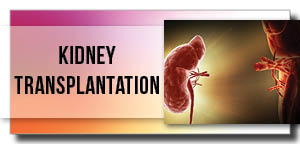
Kidney transplantation is a procedure that places a healthy kidney from another person into your body. This one new kidney takes over the work of your two failed kidneys. Kidney transplantation or renal transplantation is the organ transplant of a kidney into a patient with end-stage renal disease. Kidney stones and urinary tract infections can usually be treated successfully. Inappropriately, the specific causes of kidney diseases are still indefinite and specific treatments are not yet available for them. Sometimes, chronic kidney disease may progress to kidney failure requiring dialysis or kidney transplantation. Treating high blood pressure with special medications called angiotensin converting enzyme (ACE) inhibitors often helps to slow the progression of chronic kidney disease. A great deal of research is being done to find more effective treatment for all conditions that can cause chronic kidney disease.
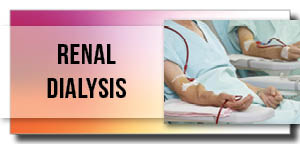
The most common procedure of kidney replacement therapy is dialysis, is a method of cleaning the blood with artificial kidneys. There is of types of dialysis they are:
1. Hemodialysis 2. Peritoneal dialysis.
Hemodialysis: Hemodialysis required with the patients of renal failure. In this process of Hemodialysis, an artificial kidney purifies blood. We ought to make an "access," usually in the forearm where blood can easily be taken from the body and directed to the artificial kidney for purification. The access collects blood from patient body and undergoes purification in artificial kidney and again injected the purified blood in to patient body.
Peritoneal dialysis: In peritoneal dialysis no artificial kidney is used. The peritoneum (lining inside your abdomen) is used as a filter instead of artificial kidney. Peritoneal dialysis is of two types they are continuous cycling peritoneal dialysis and continuous ambulatory peritoneal dialysis. Peritoneal dialysis is used in kidney failure patients.
4. Nephrology and Therapeutics
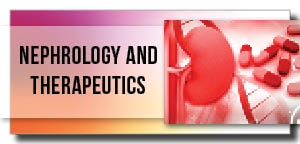
Nephrology is a branch of medicine that deals with the ailments of the kidneys and it emphases on the diagnosis and treatment of Nephrology diseases. The kidneys are paired retroperitoneal organs that lie at the level of the T12 to L3 vertebral bodies. The kidney has a fibrous capsule, which is surrounded by Para renal fat. The kidney itself can be divided into renal parenchyma, consisting of renal cortex and medulla, and the renal sinus containing renal pelvis, calyces, renal vessels, nerves, lymphatic and per renal fat. This renal parenchyma has two layers: cortex and medulla. The renal cortex lies peripherally under the capsule while the renal medulla consists of 10-14 renal pyramids, which are separated from each other by an extension of renal cortex called renal columns. The kidneys serve important functions, including filtration and excretion of metabolic waste products (urea and ammonium); regulation of necessary electrolytes, fluid, and acid-base balance and stimulation of red blood cell production. They also serve to control blood pressure via the renin-angiotensin-aldosterone system, controlling reabsorption of water and upholding intravascular volume. The kidneys also reabsorb glucose and amino acids and have hormonal functions via erythropoietin, calcitriol, and vitamin D activation.
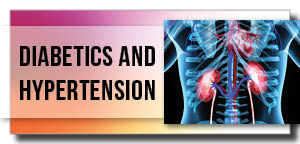
Diabetics is characteristically defined by macro albuminuria that is a urinary albumin elimination of more than 300 mg in a 24-hour collection or macro albuminuria and irregular renal function (Renal function test) as represented by an abnormality in serum creatinine, calculated creatinine clearance or glomerular filtration rate (GFR). Patients with all types of kidney disease and hypertension. This includes kidney stones, chronic or acute kidney diseases due to any cause, resistant or secondary hypertension, unexplained proteinuria or haematuria, cystic kidney diseases, inherited kidney diseases, fluid and electrolyte homeostasis abnormalities, pregnancy related Kidney Diseases, vascular kidney diseases, nephritic syndrome, glomerulonephritis and others. High blood pressure (also called hypertension) occurs when the force of your blood against your artery walls increases enough to cause damage. For people who have diabetes or chronic kidney disease, blood pressure of 130/80 or more is considered high. Have a family history of high blood pressure. Your probabilities of developing high blood pressure may be increased if you have chronic kidney disease (CKD). Are overweight and Are African American. Use a lot of table salt, eat a lot of packaged or fast foods, Use birth control pills, Have diabetes, Use illegal drugs, Drink large amounts of alcohol (beer, wine, or liquor). Some types of kidney failure may cause high blood pressure. More often it is high blood pressure that causes kidney Diseases.
6. Diagnostic, Imaging and Radiation techniques
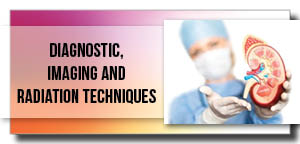
Diagnostic imaging is a strategy and procedure of making the visual representations of the interior of a body for clinical analysis and demonstrative intervention. Diagnostic looks to reveal internal structures hidden by the skin and bones, as well as to analyse and treat ailment. Though imaging of removed organs and tissues can be achieved for medical reasons, such procedures are usually considered part of pathology instead of medical imaging. Radiation treatment might be conveyed remotely or inside. Interior radiation, or brachytherapy, is the implantation of a little measure of radioactive material (seeds) in or close to the kidney disease. Angiography is the test of choice for the renal hypertension or high blood pressure caused by contraction of the renal arteries that transmit blood to the kidneys. Initial evaluation could be done by the use of ultrasound. MRI involves a large and powerful magnet in kidney diseases. Hydrogen ions in the body are used to obtain pictures of the body parts. But in regard to the kidney, an MRI gives the same information as a CT scan.
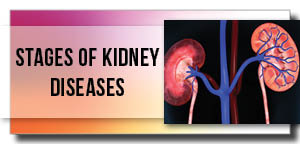
The phases of kidney disease are determined by the glomerular filtration rate. Glomerular filtration is the procedure by which the kidneys filter the blood, removing excess wastes and fluids. Glomerular filtration rate (GFR) is a calculation that determines how well the blood is filtered by the kidneys. It is one way to measure kidney types.
They are Acute kidney disease is the sudden loss of kidney function that occurs when high levels of waste products of the body's metabolism accumulate in the blood. Chronic Kidney Disease is a gradual development of permanent kidney disease that worsens over a number of years. Pediatric Kidney Disease can disturb children in numerous ways, ranging from treatable disorders without long-term consequences to life-threatening conditions. Polycystic Kidney Disease is characterized by the growth of numerous kidney cysts, which cause abnormalities in both the kidney structure and function. Hypertension Uncontrolled hypertension can damage many organs in the body including kidneys.
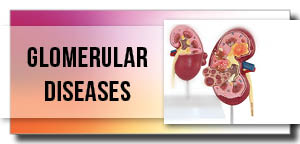
Glomerular disorders that disturb the tiny filtering systems of the kidneys called the glomerulus, Urine abnormalities such as excess excretion of protein, sugar, blood, casts, crystals etc. Tubulo interstitial diseases affecting the tubules in the kidneys, Renal vascular diseases affecting the blood vessel networks within the kidneys, Kidney failure that can be sudden or acute or long term or chronic, Kidney and bladder stones, Inflammation of the tiny filters in the kidneys leads to a state called Glomerulonephritis also known as glomerular nephritis .Glomeruli helps in the removal of excess fluid, electrolytes and waste from your bloodstream and pass them through the urine maintaining the stability of the body. Albuminuria, haematuria, reduced glomerular filtration rate, hypoproteinemia, oedema are the symptoms of this disease.
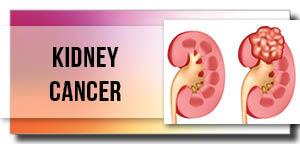
Kidney cancer (also called renal adenocarcinoma or renal cell cancer) is a disease in which cancer cells are found in the lining of tubules in the kidney. We have two kidneys, behind the peritoneum one on each side of the spinal cord, just above the waist. Small tubules in the kidneys purify the blood. Unabsorbed products formed as urine. The formed urine passes in to bladder through long tube called bladder. The urine stored in bladder until leaves from body through urethra. Kidney cancer perhaps remains clinically occult for most of its course. Immunomodulatory agents and targeted therapy are the standard of care in metastatic disease patients. Kidney cancer: The most common malignant disease affecting kidney is kidney cancer. One of the most common causes for kidney cancer is smoking.
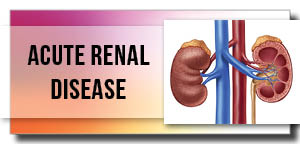
Acute Renal diseases previously called acute renal failure (ARF) is an abrupt loss of kidney function that develops within 7 days. Acute kidney injury (formerly known as acute renal failure) is a syndrome characterized by the rapid loss of the kidney's excretory function and is typically diagnosed by the accumulation of end products of nitrogen metabolism (urea and creatinine) or decreased urine output or both. AKI may lead to a number of complications, including metabolic acidosis, high potassium levels uremia changes in body fluid balance and effects on other organ systems, including death. People who have experienced AKI may have an augmented risk of chronic kidney disease in the future. Management includes treatment of the underlying cause and supportive care, such as renal replacement therapy.
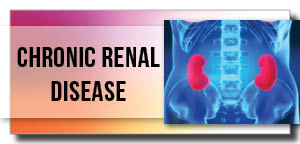
Renal failure denotes to impermanent or permanent harm to the kidneys those results in loss of usual kidney function. There are two different types of Renal failures-acute and chronic. Acute renal failure has an abrupt onset and is potentially reversible. Chronic renal failure progresses slowly over at least three months and can lead to permanent renal failure. The causes signs, treatments and consequences of acute and chronic are different. Chronic kidney disease, as defined since 2002 by the presence of kidney damage or reduced Glomerular filtration rate (GFR), affects 10% of the adult population worldwide and more than one-third of the elderly. A recent large Meta-analysis of 46 general population, high risk and CKD, including more than 2 million participants, showed that both low estimated GFR and high albuminuria were associated with increased risk of all-cause mortality, cardiovascular disease and progression to End-stage renal disease (ESRD) regardless of age.
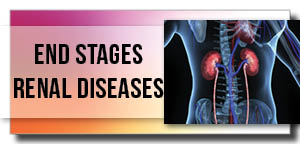
In general, patients with Anaemia of chronic illness or chronic kidney disease can be treated on a casualty basis. Confounding factors that need to be addressed in both diseases include concomitant blood loss, iron deficiency, or deficiencies of vitamin B12 and/or folic acid. When kidneys start to fail, little or no Erythropoietin (EPO) is produced and this results in a failure of red cell production. Another factor causing anaemia in kidney disease can be iron deficiency as iron is not absorbed so the kidneys start to fail this leads to renal anaemia. Several million patients with chronic kidney disease (CKD) have benefited from the use of erythropoiesis-stimulating agents (ESAs) to correct severe anaemia. Sometimes Haematopoiesis the formation of blood cellular components. All cellular blood components are derived from haematopoietic stem cells and Kidney biopsy is a medical procedure in which a small piece of kidney is removed from the body for examination, usually under a microscope. Microscopic examination of the tissue can provide information needed to diagnose, monitor or treat problems of the kidney. However, mortality data now suggest that treating CKD patients to achieve a haemoglobin (Hb) level >13 g/dl can be harmful.
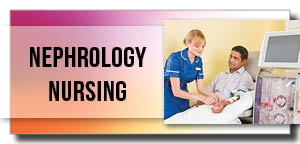
Nephrology Nursing is a deliberate effort to increase nursing knowledge by the discovery of new facts through systematic enquiry. It includes: Improvement in patient care, reduced cost of kidney care provision, accountability and protection against litigation. Addition to the existing body of nursing knowledge enhancement of nursing as a profession.
Renal care nursing is the field of nursing with a focus on the most extreme consideration of the discriminatingly sick or unsteady chronic kidney patients. Contamination revulsion and nursing consideration is the control concerned with turning away nosocomial or health awareness related disease, a functional (as opposed to scholastic) sub-order of the study of disease transmission. Infants who need escalated restorative consideration are regularly conceded into a unique region of the clinic called the Neonatal serious care and nursing consideration. The part of backing in discriminating nursing consideration: Critical consideration medical attendants work in a wide assortment of settings, filling numerous parts including bedside clinicians, attendant teachers, medical caretaker analysts, medical caretaker supervisors, clinical medical caretaker authorities and medical attendant professionals. Measurements of Renal Care Nursing’s mission are to give attendants exact, current and applicable data and lodging to exceed expectations in discriminating consideration rehearse.
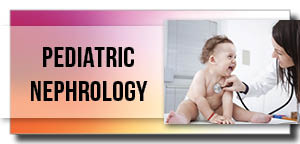
The division of Pediatric Nephrology focuses in the diagnosis and management of children with a variety of acute and chronic kidney-related disorders. The division evaluates and treats hypertension, haematuria, proteinuria, renal tubular acidosis, nephrolithiasis, glomerulonephritis and kidney failure.
Pediatric Nephritis is clinically and hereditarily heterogeneous entity characterized by either relapsing or course with important illness and mortality resulting from difficulties of the disease itself and its therapy. Pediatric Kidney stones are a group of crystals that are difficult to pass from the body.
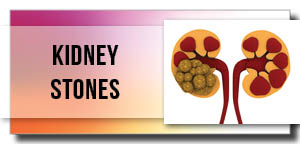
Kidney or bladder stones are solid accumulations of crystals made from minerals and proteins found in urine. Bladder diverticulum enlarged prostate, neurogenic bladder and urinary tract infection can cause an individual to have a greater chance of developing bladder stones. If a kidney stone becomes lodged in the ureter or urethra, it can cause constant severe pain in the back or side, vomiting, haematuria (blood in the urine) fever or chills.
Bladder stones are hard masses of minerals in your bladder. Bladder stones develop when urine in your bladder becomes concentrated, causing minerals in your urine to crystallize. Concentrated, stagnant urine is often the result of not being able to completely empty your bladder. If bladder stones are small enough, they can pass on their own with no noticeable symptoms. However, once they become larger, bladder stones can cause frequent urges to urinate, painful or difficult urination and haematuria.
Kidney stones (nephrolithiasis): Minerals in urine form crystals (stones), which may grow large enough to block urine flow. It's considered one of the most painful conditions. Most kidney stones pass on their own but some are too large and need to be treated.
16. Renal Nutrition, Inflammation and Metabolism
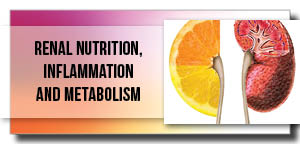
The kidneys job is to keep the body’s fluids, electrolytes and carbon-based solutes in a healthy equilibrium. Their functional units are the million or so nephrons in the renal cortex which filter most constituents of the blood other than red blood cells and protein reabsorb needed substances, secrete hydrogen ions to maintain acid-base balance, and secrete wastes.
Urine formation consists of three basic processes: glomerular filtration, tubular secretion, and tubular reabsorption. Several disease conditions can interfere with these functions. Inflammatory and degenerative diseases can involve the small blood vessels and membranes in the nephrons. Urinary tract infections and kidney stones can interfere with normal drainage, causing further infection and tissue damage. Circulatory disorders, such as hypertension, can damage the small renal arteries. Other diseases, such as diabetes, gout, and urinary tract abnormalities can lead to impaired function, infection, or obstruction. Toxic agents such as insecticides, solvents, and certain drugs may also damage renal tissue.
17. Urology/Urinary tract infections
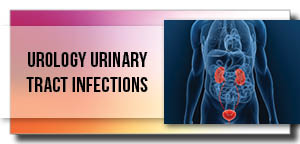
Under this category includes diseases of the urinary system, prostate gland including the kidneys and bladder. The bladder or urethra usually effected in urinary tract infections, yet more genuine and serious infections include the kidney. A bladder disease may bring about pelvic torment, expanded inclination to urinate, torment with pee and blood in the urine. Renal infection may bring about back agony, sickness, heaving and fever. Under this session we focus on Urethritis, Pyelonephritis, Blood Vessel Disorders of the Kidneys, Cancers of the Kidney and Genitourinary Tract, Cystic Kidney Disorders, Diagnosis of Kidney and Urinary Tract Disorders, Dialysis, Disorders of Kidney Tubules, Disorders of Urination, Kidney Failure, Obstruction of the Urinary Tract and Stones in the Urinary Tract.
Market Analysis
Scope and importance
The Society of Nephrology represents a wide international network and provides an professionals around the world. It is also dedicated to addressing the disparity between the developing and developed worlds in the research, diagnosis, treatment, and prevention of kidney disease. In the United States of America, the National Kidney Foundation is an organization set up for nephrology and nephrologists. The American Society of Nephrology (ASN) leads the fight against kidney disease by educating health professionals, sharing new knowledge, advancing research, and advocating the highest quality. In the United Kingdom, the National Kidney Federation and the Renal Association are dedicated to nephrology.
Members Associated with Neonatal Research:
Nephrologists
Pediatric Nephrology
Fellows or postdoctoral students
Nephrology Academicians
Students pursuing an MD or PhD
Emeritus
Young research scientists
Business delegates
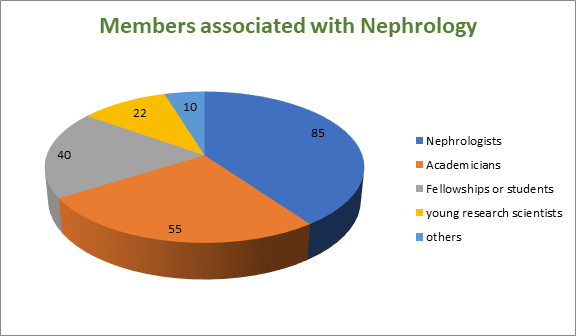
Hospitals Associated with Nephrology Research
Australia
The Royal Melbourne Hospital
St Vincent's Hospital Melbourne
St George Private Hospital
HM Hospitales
Mater Hospital
Sydney Renal Services
Queen Mary Hospital
Europe
Klinik Hirslanden, Zurich
Klinik Im Park, Zurich
Health Centre Bad Ragaz
Klinik Pyramide Am See
Klinik Beau-Site, Berne
Hirslanden Clinique La Colline
Lucerne Health
Salem-Spital, Berne
Hirslanden Klinik Aarau
J.W. Goethe University Hospital
World wide
Mayo Clinic
Cleveland Clinic
New York-Presbyterian University Hospital of Columbia and Cornell
UCSF Medical Center
Brigham and Women's Hospital
Johns Hopkins Hospital
Massachusetts General Hospital
UCLA Medical Center
Duke University Hospital
Vanderbilt University Medical Center
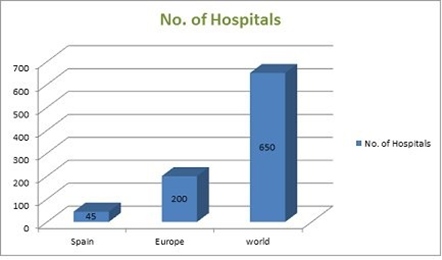
Societies Associated with Nephrology Research
Australia
Australian and New Zealand Society of Nephrology
Renal Society of Australasia
Australian Kidney Foundation
Asia
The Asian Pacific Society of Nephrology
Japanese Society of Nephrology
Hong Kong Society of Nephrology
Malaysian Society Nephrology
Singapore Society of Nephrology
Taiwan Society of Nephrology
Chinese Society of Nephrology
Indian Society of Nephrology
Europe
Danish Society of Nephrology
Swedish Society of Nephrology
British Association of Pediatric Nephrology
French Society of Nephrology
Polish Society of Nephrology
Albanian Society of Nephrology
Belgian Society of Nephrology
Austrian Society of Nephrology
German Society of Nephrology
The Renal Association (UK)
Italian Society of Nephrology
World wide
International Society of Nephrology (ISN) Gateway
American Society of Nephrology
The Philippine Society of Nephrology
Canadian society of nephrology
Kidney Disease Association
The National Kidney Foundation
Chronic Kidney Disease - World Kidney Day
Clinical Journal of the American Society of Nephrology
Indian society of nephrology
Renal association
The Asian Pacific Society of Nephrology
Emirates medical association on nephrology society
|
Industries Associated with Nephrology Research
Europe Biocon Kaneka Pharma Company NxStage Medical, Inc. Storz Medical AG Siemens Healthcare EDAP TMS S.A Dornier MedTech GmbH Nikkiso CO., LTD. Teleflex Incorporated Medline Industries, Inc. Asahi Kasei Corporation World wide Amgen Astellas Baxter International Inc. DaVita HealthCare Partners Inc. Amerisourcebergen Genentech Keryx Biopharmaceuticals, Inc. Mallinckrodt Pharmaceuticals Anthem Biopharma Sandor Janssen Biotech,inc
Universities Associated with Nephrology Research Europe
World wide Stanford University University of Michigan Yale school of medicine University of Washington University of Wisconsin Budapest Nephrology School
|
|
Learn More
Nephrology universities:
University of Cambridge | University of Oxford | Stanford University |Nephrology Conferences 2019| Johns Hopkins University | Karolinska Institute |Kidney Conferences |University of California | University of California | Yale University | University College London | Imperial College London | The University of Melbourne | The University of Sydney | King’s College London | Duke University | National University of Singapore | University of Edinburgh |NephrologyConferences2019.USA |University of Pennsylvania | University of Washington | Cornell University | European Nephrology Conferences 2019 |Columbia University | University of Copenhagen | McGill University | Monash University | University of British Columbia | University of Michigan | The University of Queensland | Washington University in St Louis |Nephrology Conferences 2019 |University of Hong Kong | Seoul National University | University of Amsterdam | University of Chicago | London School of Hygiene & Tropical Medicine | University of North Carolina | Kyoto University | Boston University | Ruprecht-Karls-Universität Heidelberg | University of Zurich | Ludwig-Maximilians-Universität München | National Taiwan University | New York University | The University of New South Wales | University of Glasgow | Uppsala University | The University of Manchester| Harvard University| University of Toronto | University of California Berkeley | University of California San-Diego | Massachusetts Institute of Technology | The University of Tokyo|
Europe Nephrology Universities:
Ghent University |Nephrology Conferences 2019| Johannes Kepler University | University of Zagreb | Charles University | Palacký University |Kidney Conferences| University of Pardubice | European Nephrology Conferences2019|UniversityofCopenhagen| AaltoUniversity| NephrologyConferences2019 USA| University of Grenoble | Kidney Conferences| Lille University | University of Lyon | Chiemi Paris tech | Laboratory Analytical Sciences Bio-analytics and Miniaturization | University of Pau and Adour Country | Kidney Conferences | University of Reims Champagne-Ardenne | University of Strasbourg | NephrologyConferences2019 |University in Aachen| European Nephrology Conferences 2019| University of Bayreuth |NephrologyConferences2019 USA |Technical University of Berlin | Nephrology Conferences 2019 |Free University of Berlin | University of Bonn| University of Alicante | University of Barcelona | University of the Basque Country | University of Cádiz | University of Extremadura|NephrologyConferences2019.USA |European Nephrology Conferences 2019| University of Granada | University of Jaén | University of Oviedo |Nephrology Conferences 2019| University of Santiago de Compostela | University of Valladolid | University of Vigo | University of Zaragoza | Stockholm University | University of Bradford |NephrologyConferences2019.USA | University College Cork | Masaryk University |Kidney Conferences| Robert Gordon University | Sheffield Hallam University | University of Southampton | University of Warwick | University of Graz | University of Innsbruck |European Nephrology Conferences 2019| Ruhr University Bochum | University of Poitiers | University of Split| ontanuniversität Leoben |
USA Nephrology Universities:
Brigham Young University |Nephrology Conferences 2019| California State University | California State University |European Nephrology Conferences 2019| Case Western Reserve University | Kidney Conferences |Clarkson University |Cleveland State University |Florida State University | Georgetown University |NephrologyConferences2019.USA| The George Washington University |European Nephrology Conferences 2019| Governors State University | Howard University | Illinois Institute of Technology |Nephrology Conferences 2019| Indiana University | Kansas State University | Kent State University| Marquette University | Miami University | NephrologyConferences2019.USA| Northeastern University | Old Dominion University |European Nephrology Conferences 2019| Oregon State University | Kidney Conferences| Purdue University | New Brunswick Piscataway | Seton Hall University | South Dakota State University | Stevens Institute of Technology | Tufts University | University of Cincinnati| NephrologyConferences2019|University of Georgia |University of Louisville| NephrologyConferences2019.USA|University of Maryland | University of Missouri | The University of Montana | University of Nebraska | University of Southern Mississippi | University of South Florida | The University of Tennessee |Kidney Conferences| The University of Texas at Austin |European Nephrology Conferences 2019| University of Toledo | Vanderbilt University | Wake Forest University | Washington State University
Asia Nephrology Universities:
Nanyang Technological University |European Nephrology Conferences 2019| University of Tokyo | Zhejiang University |Nephrology Conferences 2019| Nanjing University |Kidney Conferences| Kyoto University | Osaka University | Korea Advanced Institute of Science and Technology | East China University of Science and Technology | Dalian University of Technology | Jilin University | Nankai University |Nephrology Conferences 2019| Tohoku University |European Nephrology Conferences 2019| Seoul National University | NephrologyConferences2019.USA |Shanghai Jiao Tong University |Kidney Conferences| NephrologyConferences2019.USA |National University of Singapore | King Abdullah University of Science & Technology | Hong Kong University of Science and Technology | European Nephrology Conferences 2019|National Tsing Hua University | Indian Institute of Science | King Abdulaziz University | Peking University | Indian Institute of Technology Bombay | University of Malaya | Istanbul Technical University |Kidney Conferences| University Sains Malaysia |Nephrology Conferences 2019| Indian Institute of Technology Madras | Middle East Technical University | National Cheng Kung University | Chulalongkorn University | King Fahd University of Petroleum and Minerals | Keio University | University Putra Malaysia | Ege University | Jiangsu University | Southwest University | NephrologyConferences2019.USA|National Taiwan University of Science and Technology
Nephrology Societies:
Albanian Society of Nephrology |Nephrology Conferences 2019| Algerian Society of Nephrology, Dialysis and Transplantation| European Nephrology Conferences 2019| Nephrologist Conferences | Kidney Conferences|Austrian Society of Nephrology| Belarus Society of Nephrology| Belgian Society of Nephrology| NephrologyConferences2019.USA| Kidney Disease Conferences| Belgian Society of Dutch speaking nephrologists| Society of Nephrology, Dialysis and Kidney Transplantation in Bosnia and Herzegovina Nephrology Conferences 2019| Bulgarian Society of Nephrology| Cypriot Society of Nephrology | Kidney Conferences| Renal Conferences| Czech Society of Nephrology | The Egyptian Society of Nephrology & Transplantation | Finnish Society of Nephrology | Société Francophone de Nephrology Dialyse et Transplantation | Renal Failure Conferences| Dialysis, Nephrology and Kidney Transplantation Union of Georgia | Nephrology Association Conferences| Dialysis, Nephrology and Kidney Transplantation Union of Georgia | NephrologyConferences2019.USA| German Society of Nephrology |Hellenic Society of Nephrology| Nephrology Conferences 2019| Hungarian Society of Nephrology |Kidney Conferences|European Nephrology Conferences 2019|Icelandic Renal Association|Irish Nephrology Society | The Israeli Society of Nephrology and Hypertension | Italian Society of Nephrology | NephrologyConferences2019 |Kazakhstan Nephrology Association|Nephrology Conferences 2019.USA|Society of Nephrologists, Dialysis and Transplant Physicians of Kazakhstan|Kosovo Society of Nephrology|Lebanese Society of Nephrology and Hypertension|European Nephrology Conferences 2019| International Nephrology Conferences 2019|Libyan Society of Nephrology| Pediatrics Nephrology Conferences|Lithuanian Nephrology, Dialysis and Transplantation Association|Macedonian Society of Nephrology, Dialysis, Transplantation and Artificial Organs|Moldavian Society of Nephrology and Urology|Association of Nephrologists of Montenegro| Renal dialysis Conferences|Moroccan Society of Nephrology
Nephrology Industries:
Acura Pharma| Deva| Nephrologist Conferences| Sompharma|Tave Pharma| Mustafa Nevzat Pharma| Unifarm| AmniSure| Medica AD| Replekfarm|PolifarmaResearch & Market| Lilly| Urotech| Zarys| BB medica gmbh| LAWTON GmbH & Co. KG| NeoMed| Industrysgtock|Innovations Medical| Reda Instrumente|Modesty International| Bohme Medizintechnik| HEBU Medical| STORZ MEDICAL| Premier Health Care| Primax International| Bio Health Italia| Renal Conferences| Nanchang YiLi Medical Instrument Co., Ltd| Sppdy Way Surgical| GrayRocks Enterprises|ITC Co. Ltd.| EASTMARK|Raumedic| WYTECH International| Contact Medical Innovations|Urology Conferences|Dornier MedTech|Vimex Endoscopy|Aurosan|Renal Failure Conferences|
Euroscicon Ltd with immense pleasure invites all the contributors across the globe to the 2nd International conference on Food Security and Sustainability (Food Security 2017) during June 26-27, 2017 at San Diego, USA which includes prompt keynote presentations, Oral talks, Poster presentations and Exhibitions.
Euroscicon Ltd organizes 1000+ scientific events inclusive of 600+ Conferences, 500+ Workshops and 200+ Symposiums on various topics of Science & Technology across the globe with support from 1000 more scientific societies and Publishes 500+ Open Access journals which contains over 50000 eminent personalities, reputed scientists as editorial board members. Food security is often defined in terms of food availability, food access and food utilization. Global agriculture currently produces ample calories and nutrients to provide the entire world's people healthy and productive lives". However, food is not distributed equally to regions, countries, households and individuals. Improved access to food-through increased agricultural productivity and incomes-is essential to meet the food needs of the world's growing population. Successful food security and poverty-oriented programmes not only assist poor rural populations to produce more and diversified products but to produce a surplus that can be marketed and thereby generate income for the purposes of improving quality of life through improved diet and nutrition, investment in productive activity, and as collateral for credit to purchase inputs and/or other supplies to enhance agricultural or non-agricultural enterprise. Agricultural economists have maintained that greater concentration on small farmers leads to faster growth rates of both aggregate economic output and employment .Other analysts argue that production-focused service delivery directed solely at the poor as producers in isolated areas will yield low and probably diminishing returns. San Diego is a major city in California, on the coast of the Pacific Ocean in Southern California. San Diego is the eighth-largest city in the United States and second-largest in California With an estimated population of 1,394,928 as of July 1, 2015, San Diego is the birthplace of California and is known for its mild year-round climate, natural deep-water harbour, extensive beaches, long association with the United States Navy and recent emergence as a healthcare and biotechnology development center. The city is the seat of San Diego County and is the economic center of the region. Join us at Global Food Security conference for “Producing sustainable thoughts to bolster the future”. This event has been designed to address scientists, scholars, and different societies supporting food security, Industries and other related scientific communities with different levels of awareness, expertise and proactive solutions to create global impact in this field. Moreover, it will help industrialists to incorporate sustainability into every aspect of Agricultural Industries business model. The Food Security conference will influence industries to maximize their yield and profit through the application of strategic techniques. Additionally, it will reveal the best techniques to promote sustainable agricultural development and achieve a hunger free world by 2050.
We look forward to an exciting scientific event in the beautiful city of San Diego, USA.Market analysis

